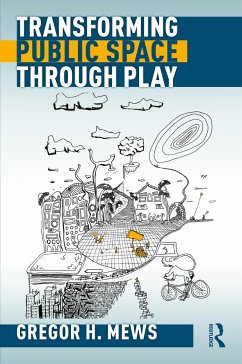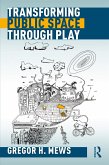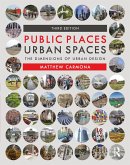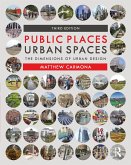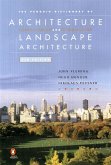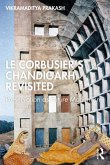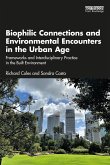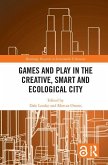Hinweis: Dieser Artikel kann nur an eine deutsche Lieferadresse ausgeliefert werden.
'Greg Mews' new book offers an empirically based methodology that can change our increasingly privatized and restricted public spaces into exciting places for play, exploration and creativity. Drawing on Lefebvre's theoretical triad of perceived, lived and conceived space and a review of current environment-behaviour research techniques such as mapping, diaries and time-lapse photography, he develops the City-Play-Framework to transform urban public spaces, sidewalks, parks and vacant land into designs that will facilitate children's and adults' sense of wonder and ludic activity. A must-read for designers and planners as well as social science researchers interested in creating a more socially sustainable city for our vulnerable youth.'
-Setha M. Low, Distinguished Professor of Environmental Psychology, Anthropology, Earth and Environmental Sciences and Women's Studies, CUNY, New York, USA
'In the tradition of William Whyte and Jan Gehl, Mews combines detailed observation of people's everyday playful behaviours with careful analysis of built form to enhance our understanding of the rich complexity of social activity in urban spaces. Transforming Public Space through Play provides an up-to-date introduction to the forms and role of play and diverse methods for studying it. The book develops fresh insights into the inter-relationships between people, activities and urban settings, which can help readers think differently about how to design and manage public space.'
-Quentin Stevens, Associate Professor, School of Architecture and Urban Design, RMIT University, Melbourne, Australia
'With Transforming Public Space through Play, Gregor Mews contributes to the existing public space literature by introducing play as a window to better understand its use. Following this perspective, Mews postulates a multi-method approach capturing particularly informal and non-instrumental activities. Based on this approach, Mews formulates his City-Play-Framework (CPF) and tests it in two pilot studies. Written in a time when use of public space was highly restricted, during the pandemic, Mews' book makes us aware how play makes such spaces so enjoyable and helps us to discover what makes us human.'
-Hendrik Tieben, Professor & Director, School of Architecture, The Chinese University of Hong Kong

